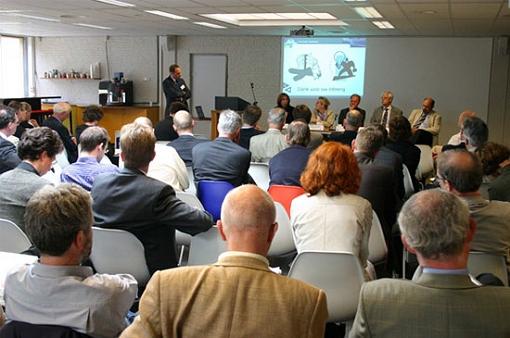Dealing with Uncertainty in Policymaking: Final report on the conference Dealing with Uncertainty in Policymaking, 16 and 17 May 2006, The Hague
Uncertainty is becoming an ever more important factor for public policy making, both because of the growing complexity of policy arenas and because of the high economic, societal and political costs of policy mistakes. At the same time, it appears to be difficult for policymakers to properly take relevant uncertainties into account in the policies they develop.
Uncertainty is of interest to policymakers
This publication reports on the conference 'Dealing with uncertainty in policymaking' which brought together researchers and policymakers for an exchange of experiences in different policy areas.

It became apparent that the importance of the theme was widely recognised. At the end of this publication, ten recommendations are given for a better way of dealing with uncertainty.
- The ‘deficit model’ (experts know everything and policymakers nothing) should be abandoned (by experts, policymakers and society).
- Scientists, policy advisers and policymakers should adopt an uncertainty-tolerant attitude.
- Uncertainty information should also be regarded as knowledge.
- Make a distinction between science, advice and policy, but do not separate them rigidly. Acknowledge the significance of coordinated work between science and policy and the presence of checks and balances.
- Determine a policy ‘expiry date’ in uncertain policy dossiers, after which the scientific status is reviewed and policy can be adapted on the basis of this (‘planned adaptation’).
- Introduce forms of ‘extended peer review’, involving experts from other disciplines and other actors when reviewing scientific reports.
- Retain space for ‘dissidents’.
- Withstand the pressure to quantify non-quantifiable uncertainty, offering false certainty, and unproductive accumulation of research.
- Ministries should create awareness of uncertainty and ways of tackling it among their workforce. A number of simple ways of achieving this include: Organising a course focused on uncertainty for the entire workforce; Adding a section on uncertainty to all analyses that are carried out within or at the request of the ministry; Selecting important projects that have been implemented by the ministry over the past twelve months and assessing how uncertainty was dealt with; Developing the function of an uncertainty expert within each ministry. This person will act as a guard dog and whistleblower and needs to reflect critically on how uncertainty is being dealt with in policy-supporting analyses within the ministry concerned.
- Organise a second edition of the ‘Dealing with Uncertainty in Policymaking’ conference in four years.
Authors
Specifications
- Publication title
- Dealing with Uncertainty in Policymaking: Final report on the conference Dealing with Uncertainty in Policymaking, 16 and 17 May 2006, The Hague
- Publication date
- 28 July 2008
- Publication type
- Publication
- Publication language
- English
- Product number
- 48